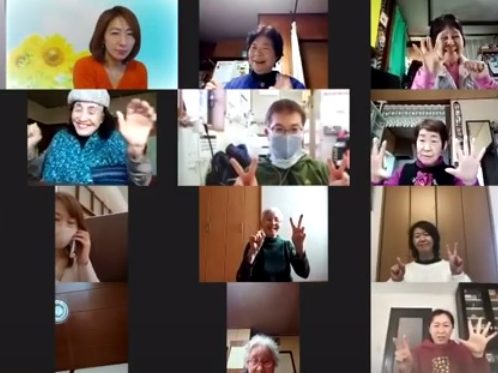2021 Special Prize for COVID-19 Response
As Japan is home to the most aged society in the world, it has found that promoting healthy longevity and reducing the need for costly long-term care is crucial for the country’s economic health. Accordingly, the 2005 revision to the Long-Term Care Insurance Act introduced the concept of “long-term care prevention,” which aims to place greater emphasis on rehabilitation and community activities, while reducing the number of people needed long-term care facilities.
In the city of Matsudo, located just outside Tokyo in Chiba Prefecture, a consortium of universities, municipalities, volunteers, and service providers has been working together since 2016 to promote and evaluate long-term care prevention through a community-building program focused on social participation and collective impact. This “Matsudo Project” focuses on an urban long-term care prevention model where local residents operate activities known as kayoinoba (community gathering places). These gatherings promote social bonding and also provide data that has been used to assess the impact of long-term care prevention in urban settings.
The COVID-19 pandemic, however, meant that it was no longer possible to hold traditional in-person kayoinoba gatherings due to the risk of infection. At the same time, older people were in danger of social isolation and secondary damage to their health. The Matsudo Project responded quickly and developed the concept for hosting free online kayoinoba classes, which made social exchange possible while avoiding the risk of infection through in-person interaction. With support from the Japan Agency for Medical Research and Development, they implemented and studied four cycles of 2–3 week classes. Evaluations were carried out on the effect of long-term care prevention before and after the free classes, and with a follow-up study as well.
The online kayoinoba offer older people the chance to socialize across generations and include activities such as exercise classes, online travel, and health consultations. To ensure that these gatherings were accessible, Matsudo Project offered them on a free trial basis. Furthermore, since older people can sometimes find it difficult to adopt new technology, Matsudo Project provided participants with the option to borrow pre-configured tablets, which were set up to use Zoom and other key applications, free of charge. Support for the participants from service providers was also made available both remotely and at care facilities. And NPOs and local volunteers have continued to provide support for online activities even after free trial classes ended.
The Matsudo Project emphasizes the gathering of evidence to evaluate the success of the project. They estimate savings of 2 million yen per person annually in average benefits if someone can avoid the need for long-term care. The health benefits of the online kayoinoba are currently being analyzed, but their initial survey found that participants enjoyed the classes and that participating in the free trial has encouraged them to be more comfortable using technology in their everyday lives.
Based on their findings, the project is also producing a manual to help other regions implement the program model, covering human resource training and new long-term care preventive measures using ICT that can be applied even after the pandemic. The project is expected to be introduced in the annual Ministry of Health report for 2021 as an example of creating a new lifestyle through linking people together.
KEYS TO SUCCESS
- The project drew on the collective impact of its work in Matsudo since 2016, which ensured that the stakeholders shared a common agenda and evaluation system, as well as established lines of communication and an existing framework for supporting activities.
- The consortium recognized that older people were vulnerable both to the COVID-19 virus and to the impact of social isolation, and so they quickly adapted their activities to help address this issue.
- To ensure that older people could participate, activities were offered on a free-trial basis and tablets preconfigured with necessary applications, such as Zoom, were made available free-of-charge for participants to borrow.
- A manual was developed based on an evaluation of the project’s initial phase, offering recommendations for other regions seeking to implement similar services during and after the pandemic.
- The project’s emphasis on evaluation and an evidence-based approach ensures that the program will have a positive impact, or can be adjusted if goals are not met.




